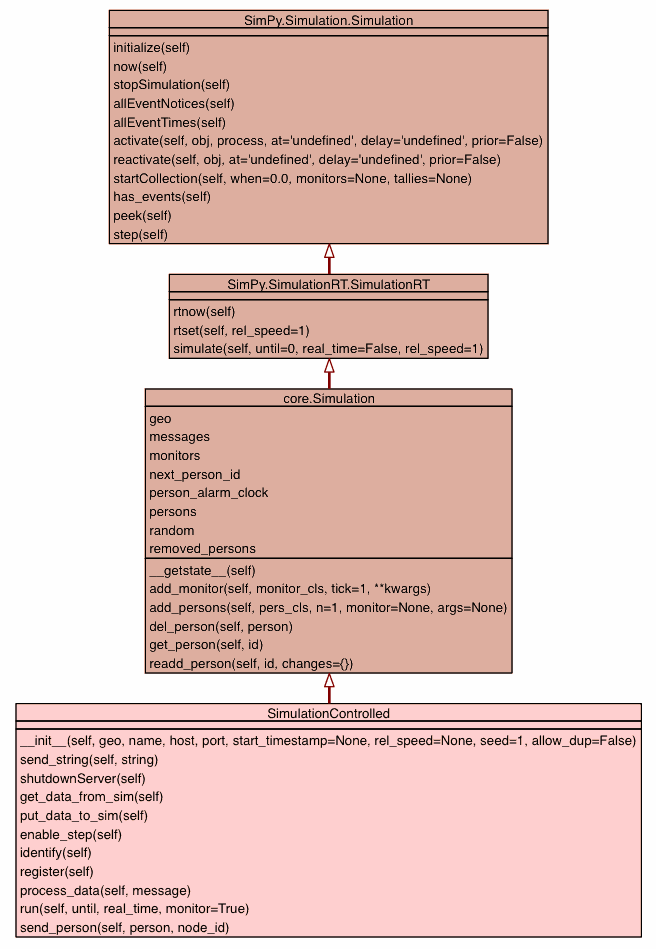
| Trees | Indices | Help |
|
|---|
|
|

The MoSP Simulation, extended for use with an external controller.
|
|||
|
|||
|
|||
|
|||
|
|||
|
|||
|
|||
|
|||
|
|||
|
|||
|
|||
|
|||
|
Inherited from Inherited from Inherited from Inherited from Inherited from |
|||
|
|||
|
Inherited from |
|||
|
|||
|
Inherited from |
|||
|
|||
|
Inherited from |
|||
|
|||
Initialize the MOSP Simulation.
|
Stops the simulation and closes connection to controller. This handles the QUIT-signal from the controller.
|
Send all available data to the controller. The GET_MODE-signal is handled by this method. Calling this when the controller does not expect data will cause it to crash. Use wisely.
|
Receive data from the controller. This handles the PUT_MODE-signal and should only be called when receiving PUT_MODE. You will most likely never do this by hand!
|
Receives the number of steps to and sets self.do_step accordingly. This handles the STEP-signal from the controller.
|
Send type, name and associated osm-node-id to controller. This handles the IDENT-signal from the controller.
|
Receive description data of other simulations and make them adressable. This handles the REGISTER-signal from the controller.
|
Extract usable data from received message. The expected message format is typeFIELD_SEPcontents. If type is 'P', contents should be a json string representing a person to re-add. If type is 'L', contents should be a string containing a log message. This mehtod can be extended to support more message types, if necessary.
|
Run Simulation after setup in external-controlled modus.
|
Prepare a person to be send to another simulation. Necessary data is extracted from the person and prepared for transfer using json. This does NOT remove the person from the simulation. That must be done elsewhere.
|
| Trees | Indices | Help |
|
|---|
| Generated by Epydoc 3.0.1 on Sun Jul 6 13:59:48 2014 | http://epydoc.sourceforge.net |